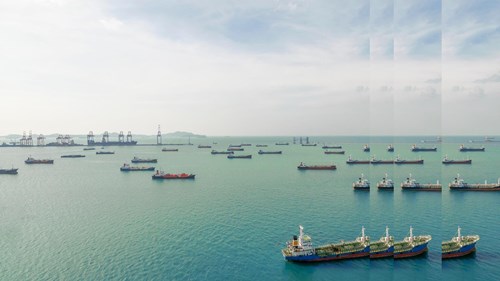German federal government’s new Bill for more effective enforcement of Russia sanctions
Background and objective
On 10 May 2022, Germany’s federal cabinet adopted the first Sanctions Enforcement Bill. The Bill was provided to the coalition parties’ parliamentary groups and was introduced into the legislative process on 12 May 2022 by the German Bundestag.
The Sanctions Enforcement Act envisaged by the SPD, Greens and FDP is intended to enable effective enforcement in Germany of the numerous EU sanctions issued in the wake of Russia’s attack on Ukraine in violation of international law and to remedy structural weaknesses in operational enforcement, particularly concerning the freezing of assets and the prohibition of providing economic resources to listed persons, as well as the movement of goods and services.
For effective enforcement of these measures at national level, it is now necessary to combine the expertise of various authorities and agencies at federal and state levels and to enable collaboration. To this end, the Bill aims to create a legal framework specifically designed for sanctions enforcement and to close regulatory loopholes.
Specific design
The Sanctions Enforcement Bill will amend the Foreign Trade and Payments Act, the Money Laundering Act, the Banking Act and the Securities Trading Act.
The authorities responsible for sanction enforcement, namely the Deutsche Bundesbank, the Federal Office for Economic Affairs and Export Control, the Federal Ministry of Digital Affairs and Transport, the Federal Ministry of Economics and Climate Protection, the Federal Ministry of Finance, the Federal Agency for Agriculture and Food, as well as the authorities responsible under the laws of Germany’s federal states are to be given the power under the draft section 9a of the Foreign Trade and Payments Act to investigate funds, assets and economic resources in order to
- request information and the submission of documents;
- summon and question witnesses;
- secure evidence;
- search homes and business premises;
- inspect land registers and other public registers; and
- identify and query accounts.
The draft section 9b of the Foreign Trade and Payments Act is intended to give the competent authorities the power to seize funds or economic resources to prevent their transfer or disposal. Restrictions on disposal may be ordered for the same purpose. Seized objects are to be kept in custody, although the draft section 9c also permits realisation in certain conditions, for example if there is a risk of a significant reduction in value or if custody would involve disproportionately high effort.
Persons affected by an asset freeze and the prohibition on making funds/resources available and those listed as part of a sanctions measure are to be obliged under the draft section 23a of the Foreign Trade and Payments Act to notify the Bundesbank of any funds and the Federal Office for Economic Affairs and Export Control of any economic resources located in Germany. The same obligation is also to apply to logistics service providers within the meaning of sections 453 and 467 German Commercial Code who have knowledge of such funds or economic resources.
Breaching the notification obligations of the draft section 23a Foreign Trade and Payments Act is to be punishable as a criminal offence with a penalty of imprisonment of up to one year or a fine (draft section 18(5b) of the Act).
Breaching bans on broadcasting, transmission, dissemination or other services, some of which up to now have only constituted an administrative offence under section 82 Foreign Trade and Payments Act or were not penalised are to be upgraded to a criminal offence under the draft section 18(1) no. 1 a) of the Act as a breach of sanctions.
In addition, the first Sanctions Enforcement Bill contains further procedural regulations, namely substitute jurisdiction of the German states’ authorities to investigate and take seizure measures, more opportunities to exchange sanction-related information between authorities by creating data access and data transmission powers, the involvement of the Central Office for Financial Transaction Investigations (FIU) in identifying assets and an addition to the urgent measures by the FIU to prohibit transactions with possible sanction relevance as well as operational analysis ex officio and the establishment of a special statutory authority for the German financial regulator BaFin to order all measures to enforce trading prohibitions with sanctions relevance.
Interpretation and outlook
These regulations are far-reaching and clearly go beyond the existing instruments. In part, they involve far-reaching encroachments on fundamental rights. The basic problem of enforcing sanctions, namely that it is difficult to establish that a particular listed person has control over assets, especially in the case of nested group structures with the involvement of foundations, trusts and similar structures, will presumably not change much as a result. Reporting obligations under the draft section 23a Foreign Trade and Payments Act only exist for assets located in Germany. Obligations to provide information under the draft section 9a (2) Foreign Trade and Payments Act can also only be enforced against people resident or based in Germany.
The First Sanctions Enforcement Act is to be followed later by the Second Sanctions Enforcement Act. Its aim is to establish a national register for assets of unclear origin and for assets subject to sanctions. In addition, an independent administrative procedure for clarifying assets of unclear origin is to be introduced and a special whistleblower hotline is to be set up.
For more information please visit our Ukraine-Russia Crisis Center
Well
informed
Subscribe to our newsletter now to stay up to date on the latest developments.
Subscribe now










